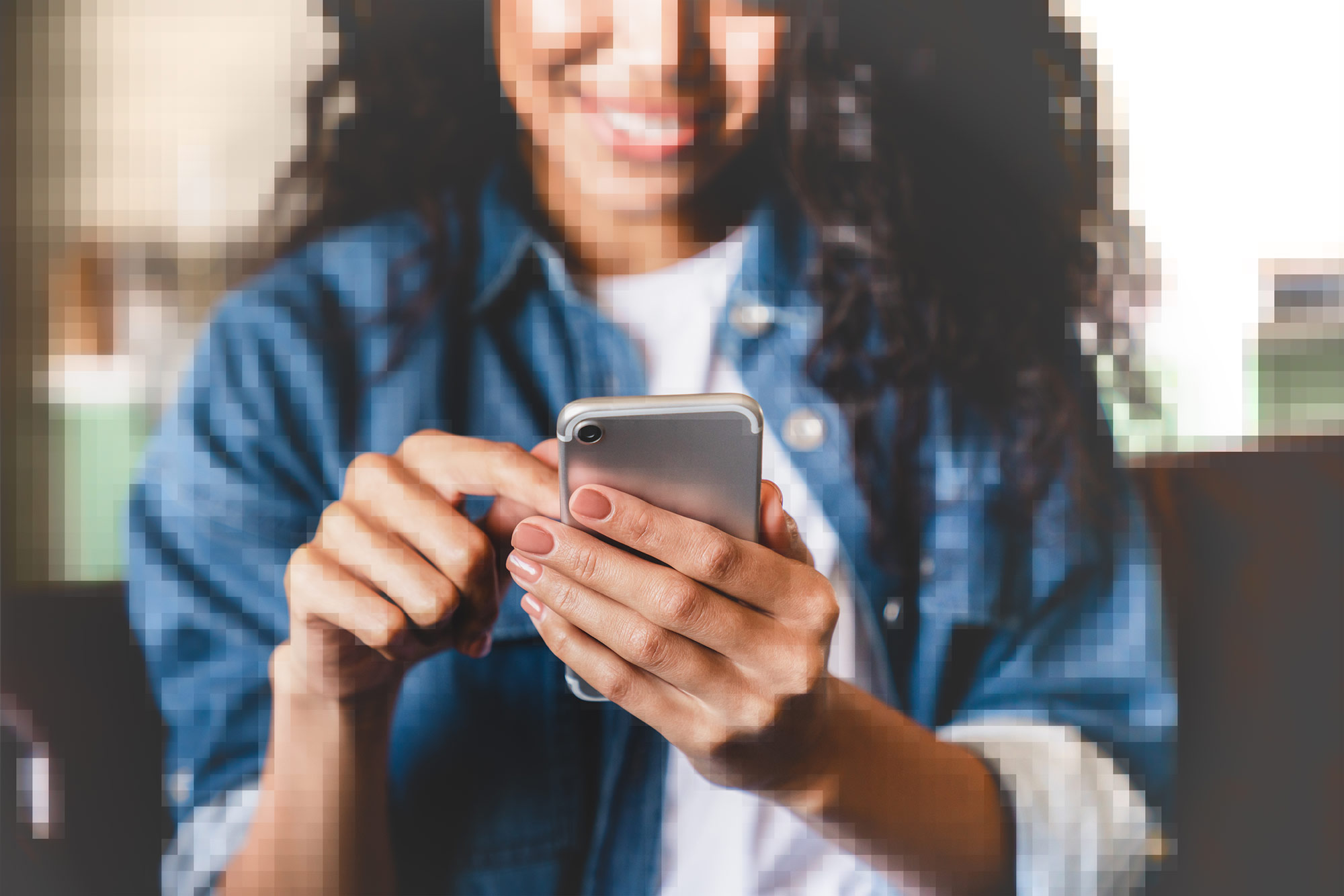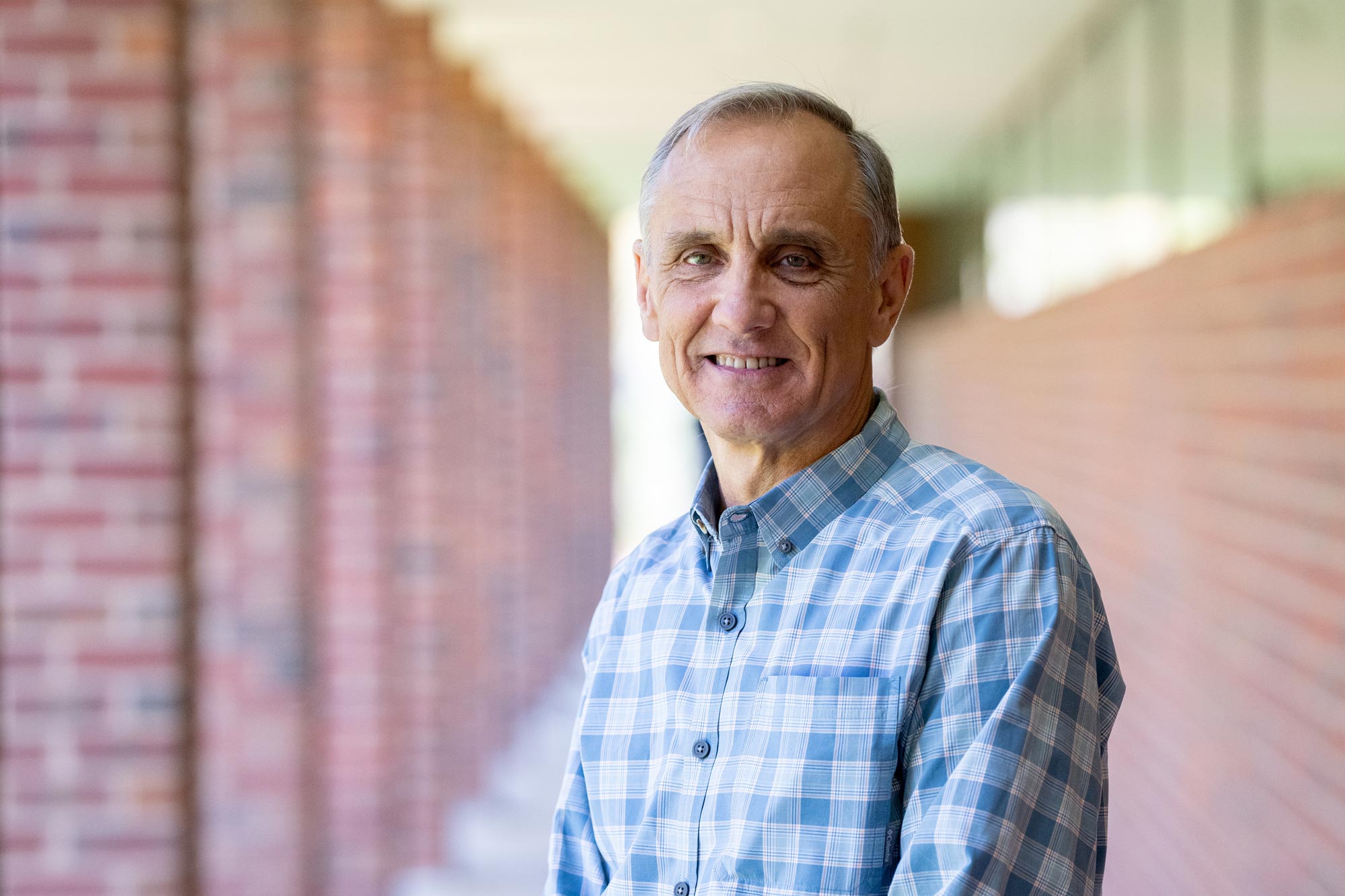
(Illustration by Emily Faith Morgan, University Communications)
There was some very unusual news earlier this month: A zoo in Toronto was moved to ask visitors to stop showing its gorillas videos and photos on their smartphones.
"For the wellbeing of gorilla troop, please refrain from showing them any videos or photos as some content can be upsetting and can affect their relationships and behavior within their family," a notice posted outside the gorilla exhibit read.
One gorilla, Nassir, is particularly enthralled with screens.
"Nassir is so into those videos. It was causing him to be distracted and not interacting with the other gorillas, and, you know, being a gorilla." Maria Franke, the zoo's director of wildlife conservation and welfare, told the Toronto Star. "He was just so enthralled with gadgets and phones and the videos."
The statement from the zoo further underscores the harm screentime can post to gorilla's fellow hominids: humans.
This spring, within weeks of one another, the United States Surgeon General and the American Psychological Association issued dire warnings about the dangers social media poses to the mental health of teenagers. Independent of one another, each detailed the harm to teenagers, often dubbed "screenagers" in the media.
In May, the American Psychological Association issued recommendations based on scientific evidence. They include things like adult monitoring in early adolescence and coaching on how to use social media and the dangers it poses.
The stakes are high, says University of Virginia teen development expert Joseph Allen, the Hugh Kelly Professor of Psychology. His decades of research have unearthed all sorts of findings, like how being "cool" in high school is a predictor of failure in adulthood.

"The current state of mental health among teens is, in a word, a disaster," Allen told UVA Today. He said before the pandemic, rates of depression and suicide attempts had risen by about 60% in the prior decade. "By all accounts - and the data are starting to roll in now - in the last three years, they've gone up even further."
Allen welcomes the American Psychological Association's recommendations, while acknowledging that some of them will be very challenging for parents to achieve.
"I think they got it about right and that, yes, we've been worried about the effects of social media and [smartphone] use on kids for a while. The APA is rightly careful to wait for actual data rather than anecdotes." he said.
"As a parent, you talk with your kids about their use. You monitor their use depending on their age, and you limit how much and when they can use social media," Allen said. "Those seem like very, very solid recommendations."
Allen said one of the easiest things parents can do is set down a rule: no cell phones in bedrooms after 10 p.m.
"The response from kids is, well, 'I use that as my alarm clock.' And the answer from parents should be, 'Well, OK. I'll spend the $15 and get you an alarm clock.' But there's going to be a battle over that," Allen said.
The APA also advised parents to stop or minimize children's exposure to things related to bullying, racism, disordered eating, suicide and self-harm, because evidence shows vulnerable youth might adopt similar behavior.
Allen said that's a great recommendation but is "a bit naïve."
He pointed out that kind of content is interspersed in social media. "There's almost no social media that kids can use that doesn't have the opportunity for those things to come into it," he noted.
It seems like an impossible assignment, he said.
"I think the answer, like many things with adolescents, is the parent needs to work with the adolescent," he advised.
"Most teenagers, if you catch them on a good day, will acknowledge that if they've just spent three or four hours on social media, it doesn't feel that great," Allen said. "Teenagers sort of know that, so that's a starting place for parents to say 'OK, we need to think about some limits here.' And then depending on the age of the teen and their maturity, you can either agree on limits or at least the parent can set them."
The key, Allen said, is that it's clear to both the parent and teen why limits are being set.
He also noted that social media isn't going anywhere.
"We're not going to get rid of any kind of social interaction that adolescents are really excited about," he said. "But we can make it something that's part of a healthy diet and not something that's the entire diet."






